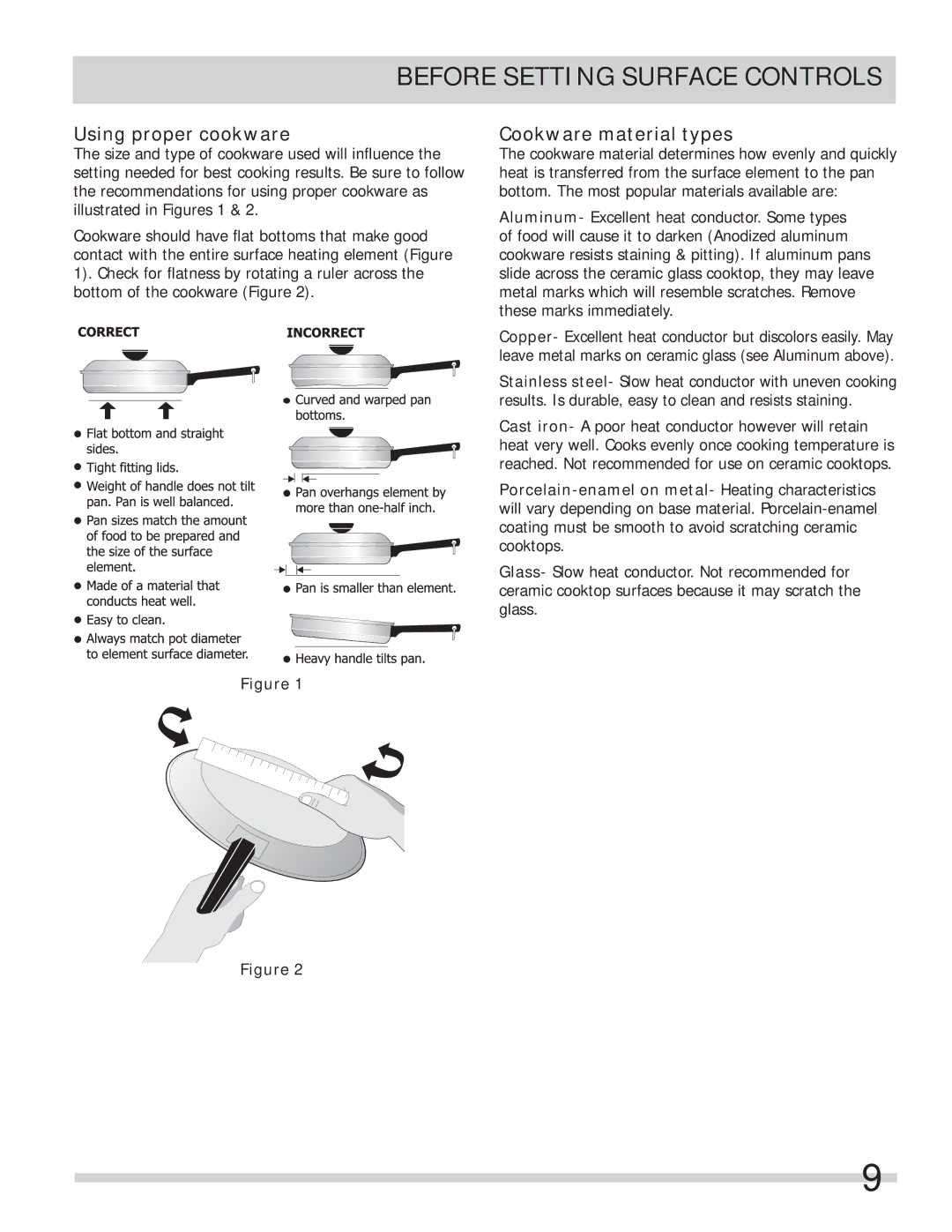
BEFORE SETTING SURFACE CONTROLS
Using proper cookware
The size and type of cookware used will influence the setting needed for best cooking results. Be sure to follow the recommendations for using proper cookware as illustrated in Figures 1 & 2.
Cookware should have flat bottoms that make good contact with the entire surface heating element (Figure 1). Check for flatness by rotating a ruler across the bottom of the cookware (Figure 2).
Cookware material types
The cookware material determines how evenly and quickly heat is transferred from the surface element to the pan bottom. The most popular materials available are:
Aluminum- Excellent heat conductor. Some types of food will cause it to darken (Anodized aluminum cookware resists staining & pitting). If aluminum pans slide across the ceramic glass cooktop, they may leave metal marks which will resemble scratches. Remove these marks immediately.
Copper- Excellent heat conductor but discolors easily. May leave metal marks on ceramic glass (see Aluminum above).
Stainless steel- Slow heat conductor with uneven cooking results. Is durable, easy to clean and resists staining.
Cast iron- A poor heat conductor however will retain heat very well. Cooks evenly once cooking temperature is reached. Not recommended for use on ceramic cooktops.
Glass- Slow heat conductor. Not recommended for ceramic cooktop surfaces because it may scratch the glass.
Figure 1
Figure 2
9
